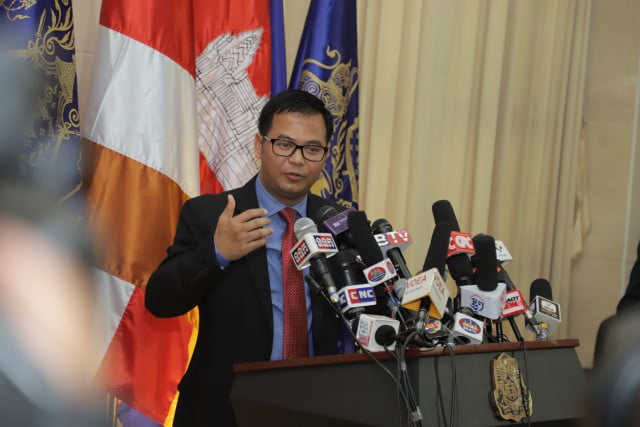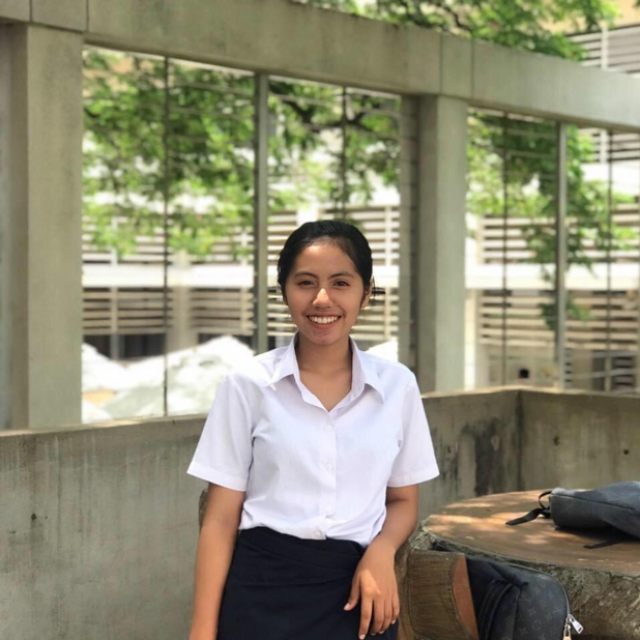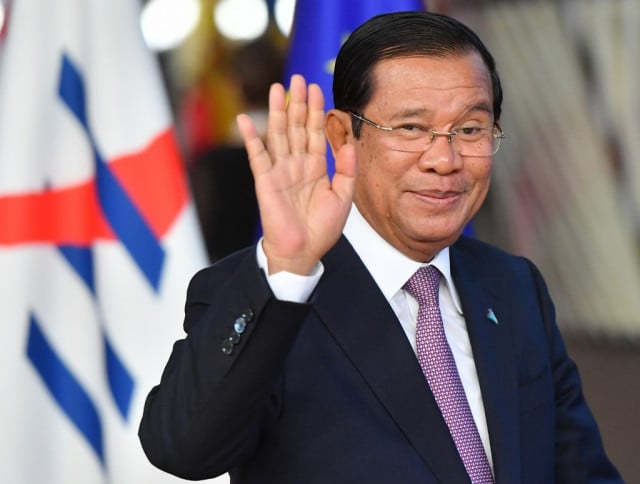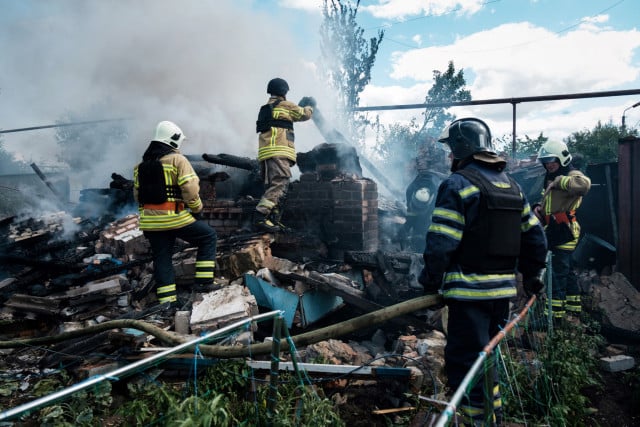The Justice Ministry Questions the Validity of NGOs’ Call for the Release of Those Recently Detained

- Phoung Vantha
- August 20, 2020 9:09 AM
As 80 organizations ask to put an end to the series of arrests following that of a prominent leader
PHNOM PENH—The Ministry of Justice on Aug. 19 said that the statement issued by 80 civil society groups regarding the government's arrest of those who criticize the government’s handling of border issues was baseless and politically motivated.
Justice Ministry spokesman Chin Malin said that, having checked the organizations that issued this statement denouncing the government’s measures against border-issue critics, he found that most of them have not been active in the past except for issuing messages and statements for political purposes.
"Protesting without notification and cooperation with the authorities violate security, safety, and public health measures, causing violence and social unrest, undermining public order, national security, and the rights and freedoms of others, including putting pressure on the judiciary, which is an independent institution: That is against the law, which the authorities must take all measures to prevent,” Malin said in a statement on his Facebook page. “[P]rotesters are also legally responsible within the law that is in effect.”
Malin was referring to a statement issued on Aug. 18 by 80 NGOs and associations following the Cambodian authorities' recent arrests of community leaders and demonstrators, and Prime Minister Hun Sen’s announcement that all those who criticize the government’s handling of border issues would be immediately arrested.
“Over the past few weeks, authorities have waged an increasingly brutal crackdown on peaceful protests that began after the arrest and imprisonment of union leader Rong Chhun at the start of August,” the 80 organizations’ statement read. “Since Chhun’s arrest, six more individuals have been sent to pre-trial detention after advocating for his release.
"It is not a crime to call for your family to be released from prison. It is not a crime to speak out against your friends' arrest. It is not a crime to stand shoulder-to-shoulder with people in your community and demand justice," the statement read. "All Cambodians have the right to peacefully protest without being shoved, beaten or dragged off by police. We call on the government to immediately release those arrested, drop charges against them and fully respect the Cambodian people's rights to free expression and assembly."
Posted at the website of the NGO Licadho, the statement was signed by NGOs and organizations ranging from the Cambodian Human Rights Action Committee, the Cambodian Independent Teachers’ Association, the Coalition of Cambodian Farmers Community Association, to the Committee for Free and Fair Elections in Cambodia, the Independent Monk Network for Social Justice, and Transparency International Cambodia.
Comments re: the Cambodian authorities’ handling of border negotiations with Vietnam lead to arrests
The series of arrests began on Aug. 1 with the arrest of prominent leader Rong Chhun. A representative of the Cambodian Watchdog Council and president of the Cambodian Confederation of Unions, Chhun on July 20 had led a team to Tboung Khmum Province to inspect the land along the Cambodian Vietnamese border in Ponhea Krek District’s Trapaing Phlong Commune.
Chhun was arrested after he had issued a statement alleging that irregularities during the negotiations between the two countries had caused Cambodians living along the border to lose land. The Phnom Penh Municipal Court formally charged Chhun with incitement to cause serious social unrest under Article 495 of the Cambodian penal code.

Youth activist Chhoeun Daravy on Aug. 13 is arrested in front of the Phnom Penh Municipal Court while protesting for the release of union leader Rong Chhun. Photo credit: Licadho website.
On Aug. 13, protesters gathered at the Phnom Penh Municipal Court to demand Chhun’s release, leading to the arrest of around 10 people. Then on Aug.14, Khmer Win Party President Soung Sophorn was arrested by the Phnom Penh police. He had visited people of Trapaing Phlong Commune along the Vietnamese border as Chhun had done earlier, joined on Aug. 13 demonstrators asking for Chhun’s release, and he was planning a series of events to request his release.
“Since Chhun’s arrest, six more individuals have been sent to pre-trial detention after advocating for his release,” the 80 organizations’ statement read. “Authorities have also beaten and arrested relatives, most of whom are women, of former members of the dissolved opposition party who were protesting against their family members’ arrests,” the organizations added, referring to women who have protested in front of the courthouse on a regular basis for the release of their husbands and family members following the arrest of former opposition party leaders several months ago.
Following these arrests earlier this month, Prime Minister Hun Sen on Aug. 16 warned that people who voice criticisms regarding border issues will face arrest. "[I] send a message [that,] as many as you [are who] come to [criticize], [we] will arrest [you] all," the prime minister said. Criticizing the government’s handling or the outcome of border negotiations constitutes an actual crime, and those who do so will be arrested immediately, on the spot, he said. “[T]he border issue is not an advocacy issue…If anyone wants to be imprisoned, we will fulfill [their wish], as desired."
Stressing the importance of border issues in his message on Facebook, Malin said that border issues are sensitive and complex ones, and that exaggerating and misrepresenting them could lead to serious harm to the country, especially in the areas of national security and diplomatic relations with neighboring countries. So measures against those who voice criticism of the government’s handling of those issues must be very strict to protect the peace of the nation, he said.
Malin added that, the judiciary being an independent body, no person or group of international organizations can put pressure on the court and that doing so to have the court drop charges against the accused will not affect the court's decision.















